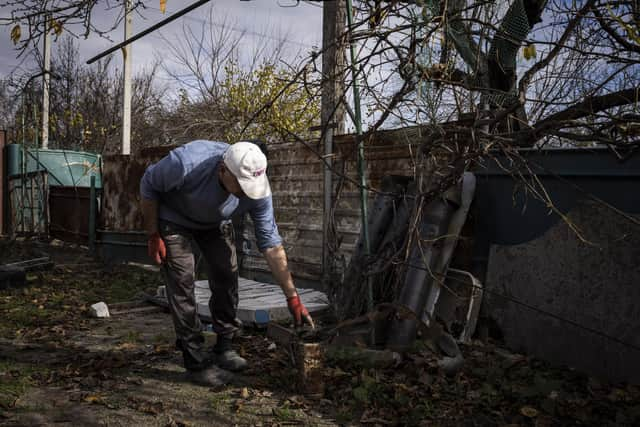Ukraine conflict: Barrage of Russian strikes on key infrastructure in Kyiv and other major cities
Russia has launched massive missile strikes across Ukraine, including the capital Kyiv, causing power and water outages, Ukrainian officials say. Part of the Ukrainian capital was cut off from power and water supplies as a result, mayor Vitali Klitschko said, with at least two strikes in Kyiv,
Officials also reported possible power outages in the cities of Kharkiv and Zaporizhzhia resulting from the strikes. Critical infrastructure objects were also hit in the Cherkasy region south east of Kyiv, and explosions were reported in other regions of Ukraine. In Kharkiv, the subway ceased operating. Some parts of Ukrainian railways were also cut off from power, the Ukrainian Railways reported.
Advertisement
Hide AdAdvertisement
Hide AdIn the Kirovohrad region of central Ukraine, the energy facility was hit, according to local authorities, while in Vinnytsia, a missile that was shot down landed on civilian buildings, resulting in damage but no casualties, according to regional governor Serhii Borzov.


Mr Klitschko said authorities were working to restore a damaged energy facility that supplies power to 350,000 apartments in Kyiv. And deputy head of the presidential office Kyrylo Tymoshenko said urgent power shutdowns were being carried out after “Russian terrorists once again launched a massive strike on energy facilities in a number of Ukrainian regions”.
The attack comes two days after Russia accused Ukraine of a drone attack against Russia’s Black Sea Fleet off the coast of the annexed Crimean peninsula. Ukraine has denied the attack, saying that Russia mishandled its own weapons, but Moscow still announced halting its participation in a UN-brokered deal to allow safe passage of ships carrying grain from Ukraine.
On Saturday, one Russian warship was damaged in the port city of Sevastopol in a drone attack, the Russian defence ministry said. It also accused British specialists of having trained the Ukrainian soldiers who then carried out the strikes in Crimea.
Commenting on Monday’s attacks, the head of Ukraine’s presidential office Andriy Yermak said that Russian forces “continue to fight with civilian facilities”.
“We will persevere, and generations of Russians will pay a high price for their disgrace,” Mr Yermak said.
It is the second time this month that Russia unleashed a massive barrage of strikes on Ukrainian infrastructure.
On October 10, a similar attack rocked the war-torn country following an explosion on the Kerch Bridge linking Crimea to mainland Russia — an incident Moscow blamed on Kyiv.
Advertisement
Hide AdAdvertisement
Hide AdAn update from the UK’s Ministry of Defence read: “Russia has deployed several thousand newly mobilised reservists to the front line in Ukraine since mid-October. In many cases they are poorly equipped.
"In September, Russian officers were concerned that some recently mobilised reservists were arriving in Ukraine without weapons. Open source images suggest that those rifles which have been issued to mobilised reservists are typically AKMs, a weapon first introduced in 1959. Many are likely in barely usable condition following poor storage."
It concluded: “The integration of reservists with contract soldiers and combat veterans in Ukraine will mean Russian logisticians will have to push two types of small arms ammunition to front line positions, rather than one. This will likely further complicate Russia’s already strained logistics systems.”